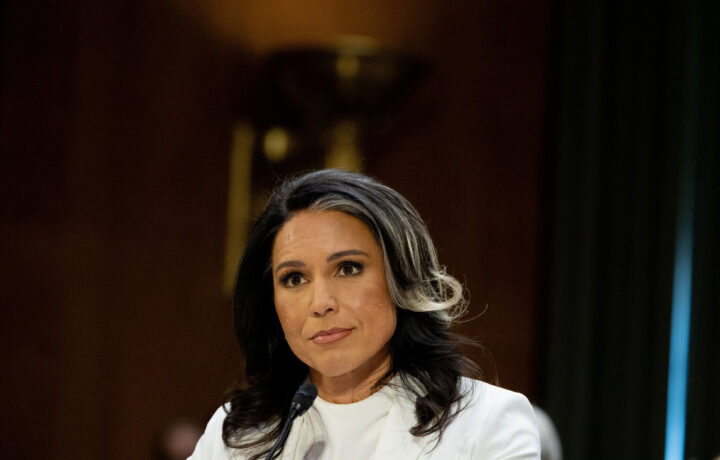In a major move within the Intelligence Community (IC), Director of National Intelligence Tulsi Gabbard announced the revocation of security clearances for 37 current and former national security officials. The decision was outlined in a memo obtained by CNN and has since drawn attention across Washington.
The Action and Who It Affects
According to reports, those impacted include individuals who played roles in the 2017 IC assessment on Russia’s attempts to influence the 2016 U.S. election, as well as members of former President Joe Biden’s National Security Council. While most of the individuals are not widely known publicly, they span multiple agencies across the IC.
It remains unclear whether all of the affected individuals still held active clearances at the time of Gabbard’s announcement.
Gabbard’s Rationale
On social media, Gabbard defended the decision, stating: “Being entrusted with a security clearance is a privilege, not a right. Those in the IC who betray their oath to the Constitution and put their own interests ahead of the interests of the American people have broken the sacred trust they promised to uphold.”
The memo circulated Monday accused certain officials of politicizing intelligence, engaging in unprofessional assessment practices, and failing to safeguard classified information. No specific evidence of wrongdoing was included in the document.
Context and Political Implications
The move comes amid broader efforts by senior Trump administration officials to revisit and, in some cases, challenge the conclusions of the 2017 IC report on Russian election interference.
- In July, Gabbard released documents she argued showed a “treasonous conspiracy” within the Obama administration, alongside referrals to the Department of Justice.
- CIA Director John Ratcliffe has conducted his own review of the 2017 assessment and made referrals of former officials to the Justice Department.
- Attorney General Pam Bondi has directed prosecutors to launch a grand jury investigation into allegations that intelligence was “manufactured” during the Obama administration.
Democratic leaders, however, contend the moves are intended to punish critics of former President Trump and to shift attention away from other politically sensitive issues, such as the Jeffrey Epstein files.
Legal experts and national security attorneys have raised questions about the legality and precedent of the action. Mark Zaid, a national security lawyer who also has faced security clearance revocation situations this year, said the decisions appear to conflict with long-standing protections meant to guard against politically motivated clearance revocations.
Broader Push to “Depoliticize” Intelligence
Since taking office, Gabbard has emphasized what she describes as a mission to depoliticize the IC. Her critics, however, argue that the revocations themselves could be seen as a political act.
The revocations represent the latest flashpoint in the ongoing debate over how intelligence assessments should be conducted, interpreted, and held accountable in a politically charged environment. Whether this action will strengthen trust in the IC—or further fuel partisan divides—remains to be seen.




